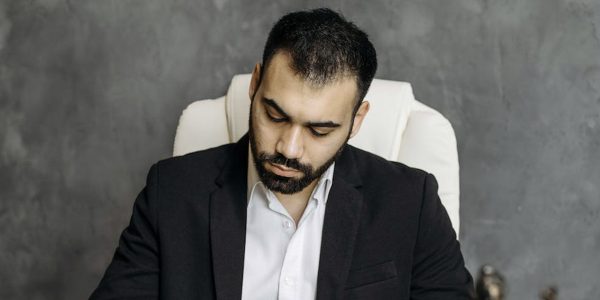The Role of an Executor in Estate Planning: Key Responsibilities and Importance in Miami
When it comes to estate planning, one crucial role that plays a significant part in the process is that of an executor. An executor is an individual appointed by a testator (the person creating the estate plan) to carry out their final wishes and manage their estate after their passing. In Miami, the role of an executor carries great responsibility and importance in ensuring the proper administration of an estate. In this blog post, we will explore the role of an executor in estate planning, their key responsibilities, and the significance they hold in Miami.
Understanding the Role of an Executor
The role of an executor is to act as the personal representative of the deceased individual’s estate. They are responsible for overseeing the distribution of assets, settling debts and expenses, and ensuring that the final wishes outlined in the estate plan are carried out. The executor is entrusted with the important task of managing the estate during the probate process, which is the legal process of administering the estate and transferring assets to the beneficiaries.
It is important to note that the role of an executor is not limited to financial matters. They also play a crucial role in handling the emotional aspects of the estate, such as communicating with beneficiaries, resolving disputes, and ensuring that the wishes of the deceased are respected.
The Key Responsibilities of an Executor
Being an executor involves various responsibilities that require careful attention to detail, organization, and a thorough understanding of the estate plan. Here are some of the key responsibilities of an executor in estate planning:
1. Initiating the Probate Process
Upon the death of the testator, the executor is responsible for initiating the probate process. This involves filing the necessary documents with the appropriate court to open the probate case officially. The executor will gather and inventory all assets, including real estate, personal property, bank accounts, investments, and other valuables.
2. Notifying and Communicating with Beneficiaries
One of the primary responsibilities of an executor is to notify the beneficiaries named in the estate plan about the testator’s passing and their rights as beneficiaries. The executor acts as a point of contact between the estate and the beneficiaries, providing regular updates and addressing any concerns or questions they may have.
3. Settling Debts and Expenses
The executor is responsible for identifying and settling any outstanding debts and expenses of the deceased. This includes paying outstanding bills, funeral expenses, taxes, and other financial obligations. The executor must ensure that all debts are properly addressed and resolved before distributing the remaining assets to the beneficiaries.
4. Managing Estate Assets
During the probate process, the executor manages the estate assets. This includes safeguarding the assets, ensuring they are properly maintained, and making informed decisions regarding their management. The executor may need to make investment decisions, sell assets, or manage rental properties on behalf of the estate.
5. Distributing Assets to Beneficiaries
Once all debts and expenses have been settled, the executor is responsible for distributing the remaining assets to the beneficiaries according to the terms outlined in the estate plan. This involves transferring property ownership, distributing financial assets, and ensuring each beneficiary receives their designated share.
6. Resolving Disputes and Challenges
In some cases, disputes or challenges may arise during the probate process. The executor plays a vital role in resolving these issues and ensuring a fair and equitable distribution of assets. They may need to work with legal professionals, such as estate planning attorneys, to address any conflicts and find amicable solutions.
The Significance of an Executor in Estate Planning
The role of an executor is of utmost significance in estate planning. Here are some key reasons why an executor plays a crucial role:
1. Honoring the Testator’s Final Wishes
An executor is responsible for upholding and carrying out the deceased’s final wishes as outlined in the estate plan. They act as a fiduciaries, ensuring that the testator’s intentions are respected and implemented accordingly. The executor’s role is essential in preserving the testator’s legacy and values.
2. Efficient Administration of the Estate
By managing the probate process and overseeing the distribution of assets, an executor helps ensure the efficient administration of the estate. Their role is critical in minimizing delays, resolving any legal issues, and ensuring that the estate is settled promptly.
3. Mitigating Potential Conflicts
Having a designated executor can help prevent conflicts and disputes among beneficiaries. The executor acts as a neutral party, making decisions based on the testator’s wishes and the estate’s best interests. Their presence can provide a sense of fairness and impartiality, reducing the likelihood of disagreements among family members.
4. Expertise and Knowledge
An experienced estate planning attorney can assist in selecting a suitable executor who possesses the necessary expertise and knowledge to fulfill the role effectively. They can ensure that the executor understands their responsibilities, has the necessary financial acumen, and can navigate any legal complexities that may arise during the probate process.
Consulting an Estate Planning Attorney in Miami
Suppose you are considering estate planning in Miami and want to understand the role of an executor in more detail. In that case, consulting with an experienced estate planning attorney is crucial. At Morgan Legal Group PLLP, our team of knowledgeable attorneys has extensive experience in all aspects of estate planning. It can provide guidance on selecting an executor who can fulfill their duties effectively.
Our attorneys will assist you in creating a comprehensive estate plan that reflects your final wishes and ensure that you have a suitable executor in place. We understand the importance of protecting your assets, preserving your legacy, and ensuring the smooth administration of your estate.
Contact Morgan Legal Group PLLP today to schedule a consultation with our experienced estate planning attorneys in Miami. We are committed to providing personalized and effective legal solutions to help you navigate the complexities of estate planning and achieve peace of mind.







